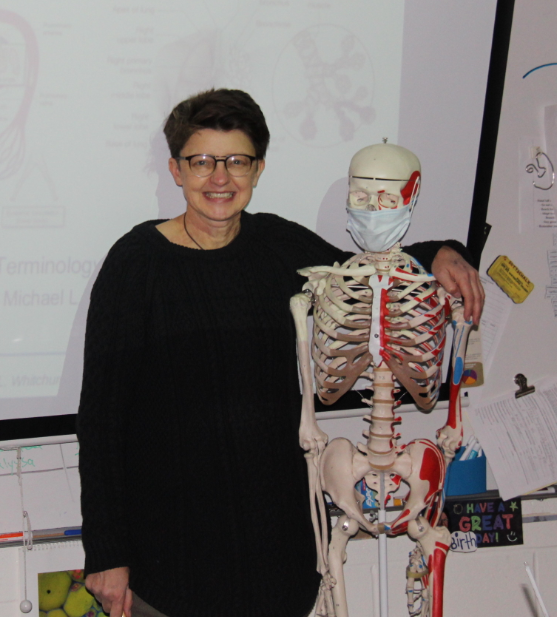
Employers adapt to new COVID-19 landscape with support from RDCs
To view the original piece please visit the Vermont Business Magazine https://vermontbiz.com/news/2021/january/12/employers-adapt-new-covid-19-landscape-support-rdcs
by Fred Kenney, Executive Director, Addison County Economic Development Corp and President of the Regional Development Corporations of Vermont When COVID-19 hit, businesses and organizations across Vermont were scrambling to adapt to a new virtual and contactless world. In response to the changing economy, the Regional Development Corporations of Vermont (RDCs)(link is external) worked quickly to launch the ReStart Vermont Technical Assistance Program, or ReVTA program(link is external), designed to deliver critically important technical assistance to hundreds of businesses and organizations looking to adapt business practices, retrofit space and access new technologies.
The magic behind this effort is its simplicity. The RDCs of Vermont—twelve independent entities— collaborated as we often do, to put the critical needs of businesses and organizations front and center in our pandemic response.
We received a generous grant of over $1.5 million in CARES Act dollars which we deployed in just a few months to build a network of almost entirely Vermont-based technical assistance providers to help businesses and organizations solve challenges exacerbated by the pandemic.
Twelve highly skilled recovery navigators worked directly with local businesses to identify their critical issue and the solution and match them with technical assistance providers from a statewide network built by the RDCs.
The RDCs knew the only way many small businesses would survive was with hyper-specialized supports from local experts.
For some, that meant new online sales tools; for others, it meant a new website or accounting support.
This program has been a game-changer for Brian Mooney, creator of Brattleboro-based Storymatic(link is external) games. Before the ReVTA program connected him with eBizVisibility(link is external), located in Fayston, Storymatic had seen a drop in sales of 15 percent.
 Brian Mooney (left) and his partner Vaune Thrachtman of Storymatic.
Brian Mooney (left) and his partner Vaune Thrachtman of Storymatic.
With search engine optimization and other technical marketing help, Mooney was able to change his website to help more story-minded people find his products. The result of this partnership: Storymatic is seeing sales 45 percent above the same timeframe last year.
“We will be in a better position in 2021 than pre-pandemic,” Mooney said in an email to Adam Grinold of the Brattleboro Development Credit Corporation (an RDC member). “The TA program helped me do things I simply could not do on my own. It’s a very successful program and a good use of State funds. I encourage its return, because I think it can help a lot of people.”
Another important aspect of this program is its broad reach.
We were able to work with a significant number of women-owned and minority-owned businesses.
We know we must continue to do better at reaching these populations to achieve greater equity in our work and leveraging the ReVTA network is one way to achieve this goal.
Here are some statistics on the program:
Businesses and Non-Profit Organizations
- 512 business and organizations joined the program and received direct assistance from RDC ReVTA recovery navigators.
- To date, 402 have hired technical assistance vendors.
- These businesses employ a total over 3,539 people.
- Out of those 402 Businesses
- 184 or nearly half are women-owned
- 137 are owned by people over the age of 55
- 19 are owned by people born outside of the U.S.
- 12 are veteran-owned
- 10 are owned by Black, Indigenous, or Latinx people
- 12 are owned by people with disabilities
Businesses Offering Technical Assistance Through ReVTA (Vendors)
- The RDC ReVTA program built a network of 361 technical assistance providers, or vendors.
- To date, 229 have made partnerships to provide assistance.
- Out of those 229 that have formed ReVTA partnerships:
- 91 are women-owned
- 68 are owned by people over the age of 55
- 6 are owned by people born outside of the U.S.
- 6 are veteran-owned
- 4 are owned by Black, Indigenous, or Latinx people
- 3 are owned by people with disabilities
In my own Addison County, ReVTA helped Addison Allies Network (AAN), a group of volunteers building a stronger, more diverse, and inclusive community by teaching English, providing needed services, and hosting social opportunities for migrant farmworkers living here.
The program connected AAN director Veronica Ciambra with Nathan Suter of Vermont-based BUILD, an organizational development strategies firm.
“Things have gone very well,” Ciambra stated in a recent letter to our office. “Nathan is bilingual and has been helping us to integrate our meetings more effectively to include members of the migrant farm worker community. We have enjoyed working with Nathan and look forward to our continued work with him, made possible by your generous grant.”
We have literally hundreds of stories like these as a result of this program.
What sets this pandemic apart from other financial crisis like the Great Recession and other natural events like Tropical Storm Irene, is that none of us knows just how dramatic or protracted the economic impact will be.
What we do know is that it will take significant and ongoing federal and state support, coupled with Vermonters’ unending spirit of ingenuity and community, to get us through. There are some programs that are big dollars and big flash.
There are other programs like this one, that are smaller, but make a huge difference for the thousands of Vermonters who depend on them.
As Vermont considers a multitude of expenditures in 2021, and realizing that there are still unmet business needs, I hope lawmakers and their constituencies understand the impact the ReVTA program has had on organizations—and, more importantly, people—in Vermont.



